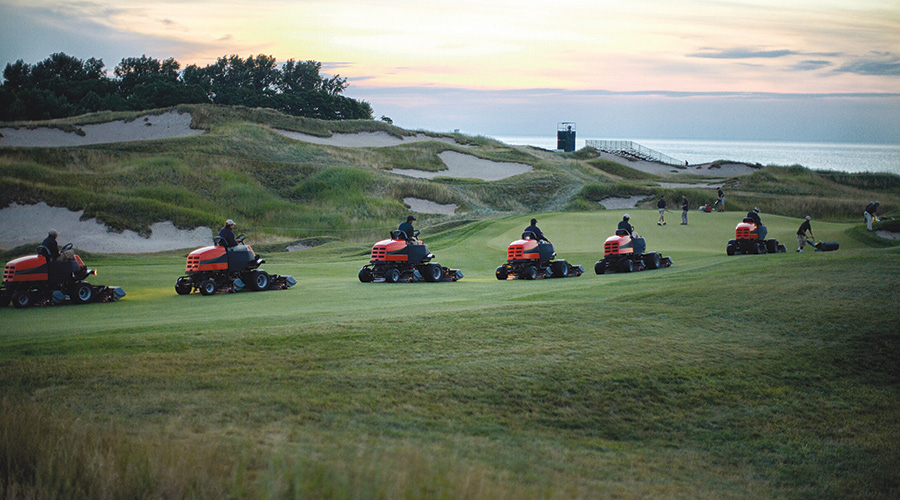Mower Specification: Consider Performance, Operator Training
Mower specification often centers on the unit's initial cost and, more recently, its environmental impact. Too often lost in the process are two other important considerations: ensuring the mower will perform reliably in demanding conditions and providing proper training for operators to maximize the investment.
For the grounds services department, each day starts with operators checking the mowers' condition, as well as oil and gas levels, tire pressure, and other performance-related components. The department's mechanic performs check-ups on mowers based on each unit' hours of operation. When a mower's time comes, it gets a top-to-bottom inspection, Bair says.
Operators also monitor the performance of mowers as they work each day and address problems they encounter.
One recent issue involves high temperatures on the department's diesel mower. Operators have found they need to take a break from mowing several times each day to let the mower cool down before continuing, Bair says.
"On that one mower, we really have to pay attention to the heat," he says.
The addition of a propane-powered mower also has added some responsibilities for operators. The department's night crews now are responsible for refilling the propane tanks so operators can start mowing immediately the next day.
"We make sure that when the operators are ready to go, the equipment is ready, too," Bair says.
The department also tries to extend performance life by mandating training for operators and the mechanic.
"Every mower has its own little nuances," Bair says, adding that new employees also receive training on all equipment they will use.
Sustainability Issues
The department has updated some of its purchasing and operating procedures to minimize the impact of mowing on the environment. Its mowers now incorporate mulching decks to minimize or eliminate the need to dispose of clippings.
In part, the changes have come as a result of state mandates. For example, Arizona's governor signed an executive order several years ago that banned gasoline-powered grounds equipment, including mowers and blowers. As a result, new equipment should use propane, electric, solar, or alternative energy, when possible.
The department recently purchased a bio-diesel sprayer, Reyna says, adding he is pursuing other, similar options.
"I'm really interested in bio-diesel," Reyna says.
The impact of sustainability has even led managers to consider replacement parts in their purchasing decisions. For example, a particular mower might require replacement parts from as far away as Europe, Reyna says, adding that ideally, a mower's parts would be available from local suppliers, reducing shipping costs and emissions resulting from transporting equipment.
Related Topics:













